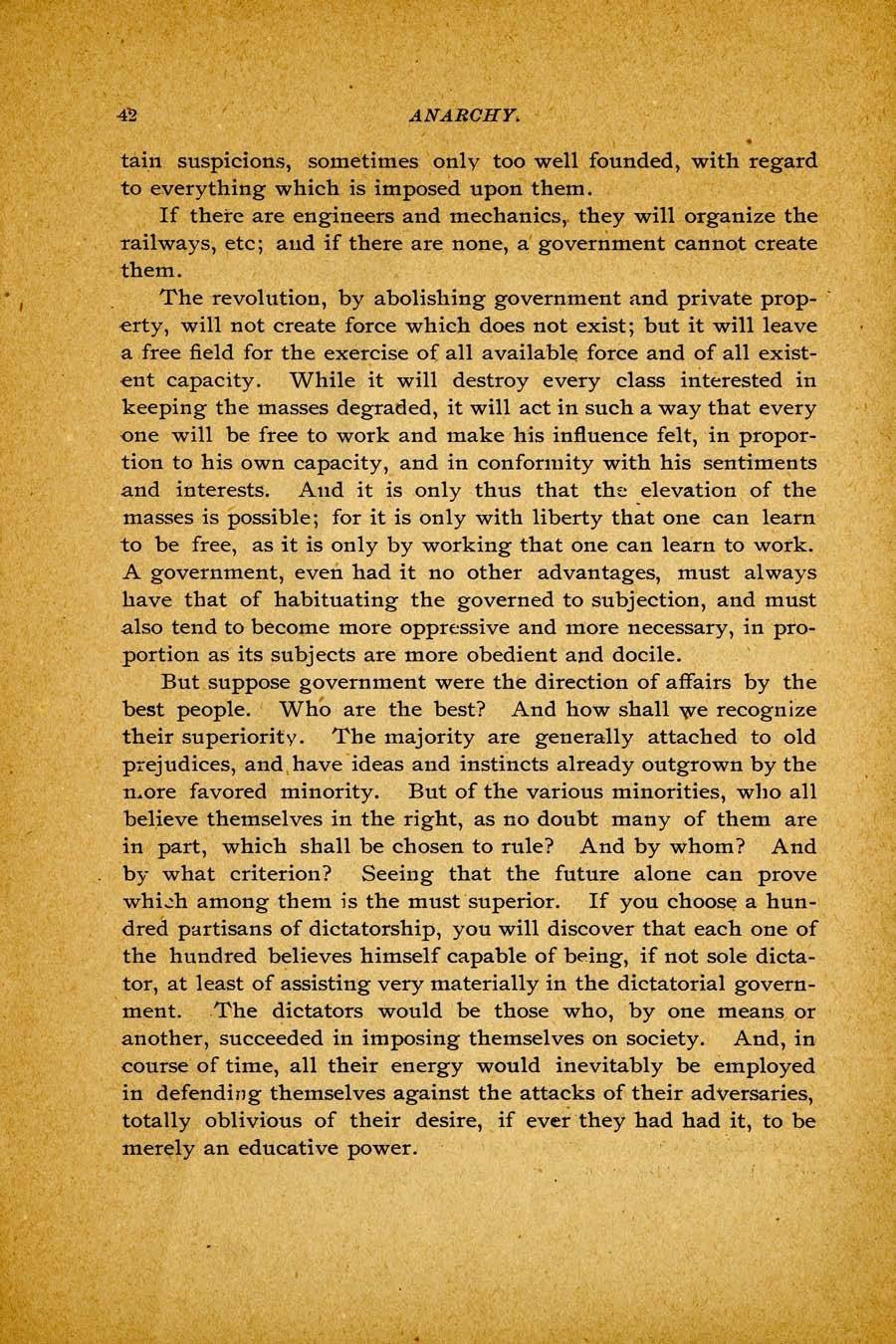tain suspicions, sometimes only too well founded, with regard to everything which is imposed upon them.
If there are engineers and mechanics, they will organize the railways, etc; and if there are none, a government cannot create them.
The revolution, by abolishing government and private property, will not create force which does not exist; but it will leave a free field for the exercise of all available force and of all existent capacity. While it will destroy every class interested in keeping the masses degraded, it will act in such a way that every one will be free to work and make his influence felt,in proportion to his own capacity, and in conformity with his sentiments and interests. And it is only thus that the elevation of the masses is possible; for it is only with liberty that one can learn to be free, as it is only by working that one can learn to work. A government, even had it no other advantages, must always have that of habituating the governed to subjection, and must also tend to become more oppressive and more necessary, in proportion as its subjects are more obedient and docile.
But suppose government were the direction of affairs by the best people. Who are the best? And how shall we recognize their superiority. The majority are generally attached to old prejudices, and, have ideas and instincts already outgrown by the more favored minority. But of the various minorities, who all believe themselves in the right, as no doubt many of them are in part, which shall be chosen to rule? And by whom? And by what criterion? Seeing that the future alone can prove which among them is the must superior. If you choose a hundred partisans of dictatorship, you will discover that each one of the hundred believes himself capable of being, if not sole dictator, at least of assisting very materially in the dictatorial government. The dictators would be those who, by one means or another, succeeded in imposing themselves on society. And, in course of time, all their energy would inevitably be employed in defending themselves against the attacks of their adversaries, totally oblivious of their desire, if ever they had had it, to be merely an educative power.
